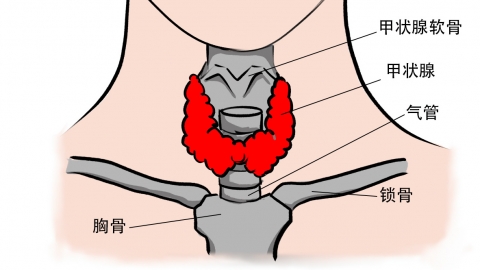What diseases can hypothyroidism cause?
Generally, hypothyroidism can lead to various diseases such as myxedema, coronary atherosclerotic heart disease, anemia, hyperlipidemia, and infertility. If concerned, it is recommended to seek medical advice early. Detailed explanations are as follows:

1. Myxedema: Insufficient thyroid hormone leads to deposition of mucopolysaccharides in tissue spaces, causing swelling of the skin and subcutaneous tissues. This manifests as facial puffiness, thickening of the eyelids, and dry, coarse skin; severe cases may affect the entire body.
2. Coronary Atherosclerotic Heart Disease: Reduced thyroid hormone slows metabolism and cholesterol clearance, leading to elevated blood lipids. Lipid deposition in blood vessel walls accelerates atherosclerosis, resulting in inadequate blood supply to the heart and increasing the risk of coronary atherosclerotic heart disease.
3. Anemia: Thyroid hormone deficiency affects hematopoietic function and may cause impaired iron absorption or abnormal metabolism of vitamin B12 and folic acid, reducing red blood cell production and causing anemia, which manifests as fatigue and pallor.
4. Hyperlipidemia: Insufficient thyroid hormone inhibits the activity of enzymes involved in cholesterol metabolism, leading to accumulation of lipids such as cholesterol and triglycerides in the blood, resulting in elevated lipid levels and hyperlipidemia.
5. Infertility: Inadequate thyroid hormone secretion affects ovarian function in women, leading to abnormal ovulation and menstrual disorders. In men, it may cause a decline in sperm quality, thereby increasing the risk of infertility.
Timely medical evaluation is necessary when symptoms of hypothyroidism appear. Once diagnosed, standardized thyroid hormone replacement therapy should be initiated, with regular monitoring of hormone levels and related indicators to reduce the risk of complications.








